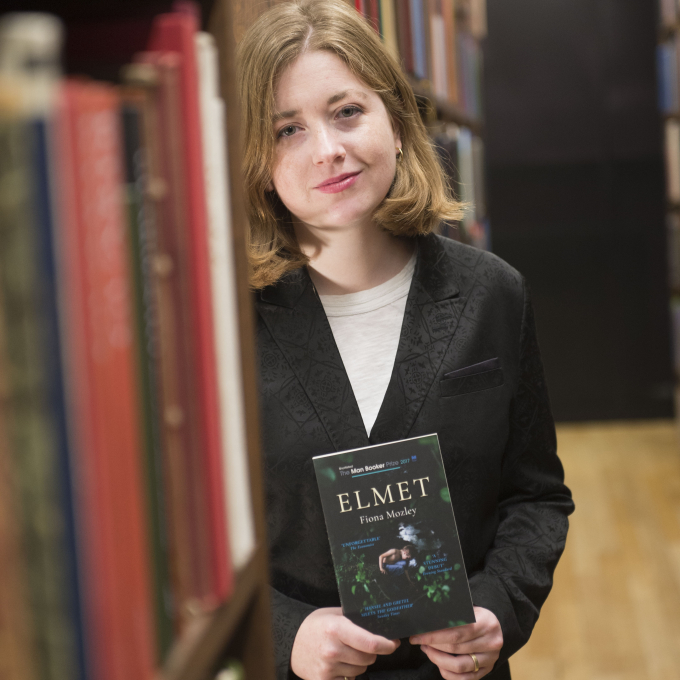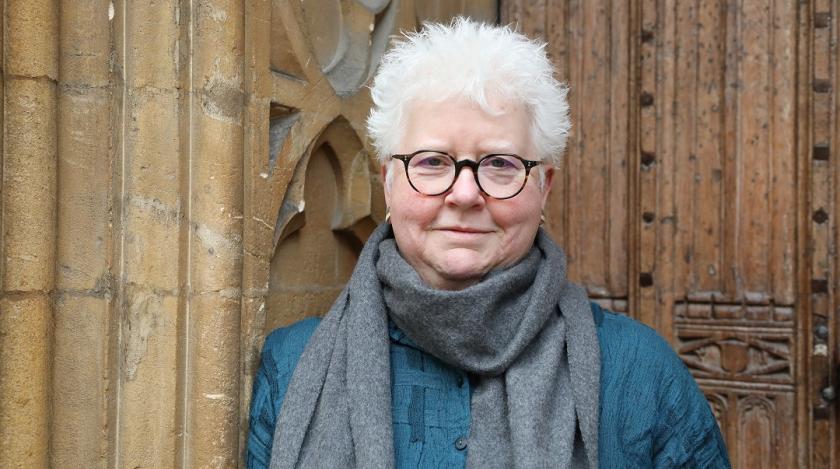
- ©
- Francesco Guidicini
Biography
Fiona Mozley was born in London and grew up in York. She studied History at the University of Cambridge and later lived in Buenos Aires and London. She is currently studying for a PhD at the University of York in medieval history, researching concepts of decay in the Middle Ages.
Her debut novel, Elmet, was published in 2017 to great acclaim. It won the Somerset Maugham Award and the Polari First Book Prize, was shortlisted for the Man Booker Prize, and longlisted for the Women’s Prize for Fiction, as well as numerous other awards.
Critical perspective
‘Elmet’, Ted Hughes wrote in the preface to his poetic sequence Remains of Elmet (1979), was the ‘last independent Celtic kingdom in England and originally stretched out over the vale of York’; even into ‘the seventeenth century’ it was known as ‘a ‘badlands’, a sanctuary for refugees from the law. These words appear as the epigraph to Fiona Mozley’s debut novel Elmet, foregrounding the haunting of the modern by the medieval. Mozley, who is currently working on a PhD about medieval concepts of land and decay, first began the novel on a train journey from York (where she grew up, and now studies) to London, inspired by the ‘copses and the outbuildings’ of the passing landscape (Evening Standard, 28 July 2017) and the ‘people who lived there’ (Vogue, 16 October 2017.) Central to the composition of Mozley’s novel, then, was the sense of this landscape as a palimpsest, a site of submerged histories teetering at the brink of visibility. The novel itself is similarly laden with the past. In the words of Danny, its young narrator, ‘the soil was alive with ruptured stories that cascaded and rotted then found form once more and pushed up through the undergrowth and back into our lives.’
These ruptures of an historical and cultural past are both conspicuous and embedded. Hughes’ influence is obvious, foregrounded even, but it in turn makes it hard not to hear echoes of Sylvia Plath too, whose body is buried in the same region as the novel’s setting, not least because the young narrator Danny refers continuously to his father as ‘Daddy’, recalling Plath’s famous poem. ‘Daddy’ issues are one layer of this novel’s fixation upon inheritance and traces, but they are of an altogether different sort to those of Plath’s ‘Daddy’. Mozley’s father figure is a kind but brutish man who fights for money and has worked to build a precarious makeshift world on the land for Danny and older sister Cathy. He is a cipher for a particular form of masculinity, a formidable figure of actions not words, a man whose eloquence resides in his muscles, and these broad descriptive brushstrokes comprise a significant counterpoint to Danny’s vexed gender identity and possible trans-ness, a heavily foreshadowed plot which remains relatively untapped until the novel’s later section.
Danny’s multi-faceted character has been construed variously by reviewers. J. Robert Lennon writes that the question of Daniel’s ‘gender identity’ is too dominant, such that his ‘particularity never really comes through’, confounded by the fact that he is a ‘strange narrator’ whose sentences read ‘at times […] like a child’s’ and at others are ‘wordy and elaborate, and often about things not integral to the story.’ (London Review of Books, 10 May 2018.) The precise temporality of the narrative, and the question of quite when or where Danny is narrating from, are indeed left somewhat ambiguous, and the novel is punctuated throughout by a number lyrical, italicised passages that presumably take place shortly after the bloody denouement of the plot proper. But this instability feels consonant with the novel’s aesthetic of traces and remains, a site of enfolded temporal worlds in which personal and historical memories are interweaved. John Williams commends the ‘skill and ambition’ in Mozley’s choice to ‘voice a story set in the present day as if it could be happening nearly any time in human history’ (The New York Times, 27 November 2017.) In Danny’s words, recalling a medieval statue he once saw, the ‘kind of morality’ that the characters of Elmet are ‘appealing to […] had not truly existed since those tall stone crosses were placed in the ground, and even only in dreams, fables and saga […] the morality of verse’.
If, for a critic like Lennon, such passages feel far-fetched for a fourteen-year-old, being overly literate or literary moments in which Mozley as ringleader appears to betray herself, they nonetheless characterise Danny as a speaker whose lack of formal education (other than home-schooling with one of Daddy’s friends) has been replaced by an articulate, even psycho-geographical knowledge of the surrounding landscape. (Not to mention that such a critique presumes Elmet to be a strictly realist work, something which - in spite of its unadorned style - it does not claim to be.) The things Danny notices feel laden with symbolic potential, like the trees which cast ‘long, precise shadows’ and the ‘stones’ which were ‘chucked up by heavy machinery’ and ‘sliced the light more precisely still’. These are among the novel’s various figurative answers for representing the interrelated workings of time and land, the natural phenomena casting shadows upon what modernity brings to light. The characters themselves are implicated in this porosity of landscape and time, and the natural often mediates Danny’s descriptions of characters, like Cathy, whose hair is ‘black as a Whitby jet.’
These shadows also resonate metaphorically with the novel’s politics, which are gestured to in the very first sentence: ‘I cast no shadow.’ The figures these characters cut, and the traces they do or do not leave, speak to their social invisibility. These are lives lived in the margins and on the edges, situated firmly outside the machinations of capitalism that nonetheless still endanger them, represented in Elmet by the villainous land-owner Mr. Price. Whilst firmly rooted in the Yorkshire landscape, and a well-worn ‘strain of British northern gothic’ (The Guardian, 9 August 2017), Mozley’s novel in this sense has an affinity with the American tradition of dark and violent inquiries into notions of land and home. Mozley’s work feels reminiscent not only of literary examples - it is no surprise that she describes Cormac McCarthy’s Blood Meridian (1985) as one of her favourite novels (Vogue) - but also the more recent string of cinematic adaptations about fathers and children living precariously off-the-beaten-track, in particular Debra Granik’s films Winter’s Bone (2010) and Leave No Trace (2018), set in the Ozark Mountains and Portland, Oregon respectively. Elmet balances numerous theses about class, ownership and gender, but at its heart it is a simple tale, joining the ranks of stories about humans trying (and sometimes failing) to survive.
